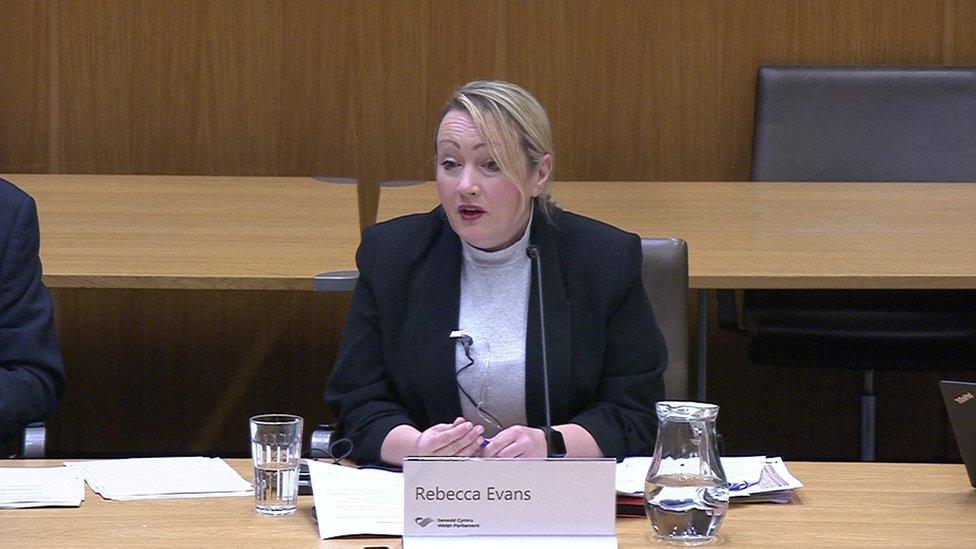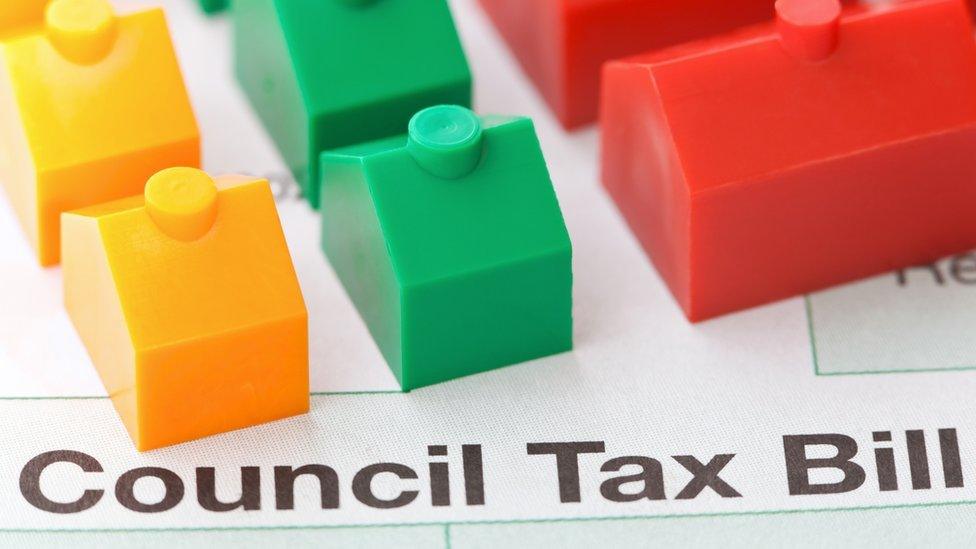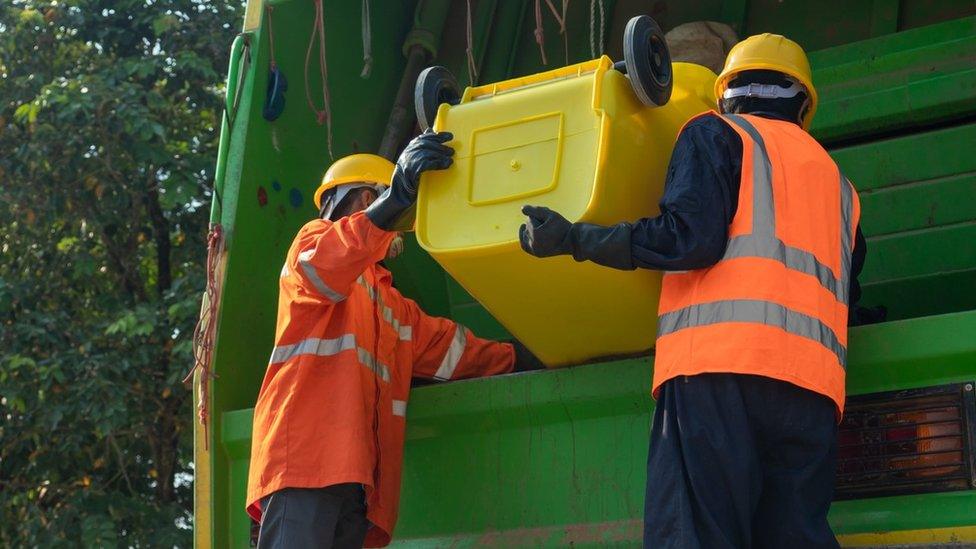'Real' cuts to council services from 2024, says leader
- Published

Councils fund schools, care services, waste collections and some local transport
"Harder" cuts to local services in Wales will start in 2024 rather than this April, a council leader has said.
Anglesey's Llinos Medi said councils were using cash reserves, making smaller cuts and raising council tax to prepare for the 2024-25 financial year.
"I think that's when we will see real cuts kicking into services," she said.
Rhondda Cynon Taf leader Andrew Morgan said inflation, energy costs, pressure to raise pay and demands on services had put councils in a "perfect storm".
Mr Morgan, who also leads the Welsh Local Government Association, said "there will be some tough decisions".
Both councillors appeared before the Senedd's local government and housing committee.
Finance and Local Government Minister Rebecca Evans said the Welsh government had provided the "best possible" funding to councils it could.
Most of local authorities' income comes from the Welsh government which last month announced its funding for them would increase by 7.9% from April.
Labour ministers said they were prioritising frontline public services but councils warned the increase only covered half of the gap in funding they face.
Plaid Cymru councillor Ms Medi told the committee on Thursday: "What most local authorities are trying to do this year is to try and balance the books, in using reserves, in making minor cuts and raising council tax in preparation for 2024-25.
"I think that's when we will see the real cuts kicking into services.
"So what we've seen is local authorities using reserves in order to prepare for that harder cut to come.
"We're all anticipating that next year will be even worse for us."
Councils were looking at "everything" to see where money could be saved, she said.

Leisure centres could face closure as councils seek to cut costs
Local authorities are required by law to provide certain services, such as education and social services, while other services, known as non-statutory, fall outside the legal requirements.
"The challenge for us is that non-statutory services do have an impact on statutory services," said Ms Medi.
"Leisure and health are connected.
"If we close a leisure centre, perhaps those that are least profitable in the most deprived area, you could argue that's where they are most needed, but that's where the costs are highest."
Labour Rhondda Cynon Taf leader Mr Morgan said there was a "balance to be struck between either council tax increases at a significant rate [and] making savings where possible without impacting on services".
"But, undoubtedly, there will be other cuts to services or service changes, I think I'm right in saying, which all local authorities will have to consider to a certain extent."
This might include "changes in things like bin services, it could be cutting or closing some sports facilities, there is a whole raft of things that local authorities are considering".
"But it is obviously down to those individual authorities to take those tough decisions."

Rebecca Evans said councils face "really difficult decisions"
Minister Rebecca Evans said the Welsh government had provided "the best possible settlement" to councils "in the circumstances".
"It still is the case that they will have to take really difficult decisions in order to manage the budget because the additional funding which we did receive from the UK government doesn't meet the pressures of inflation," she told the committee.
"There are still going to be gaps which they're going to have to have to address and that will make for difficult decisions.
"But, overall, I think we've done the best possible job that we could have done in the circumstances and, obviously, it builds on a good settlement last year and in the previous years before that as well."
- Published14 December 2022

- Published30 October 2022

- Published28 October 2022
